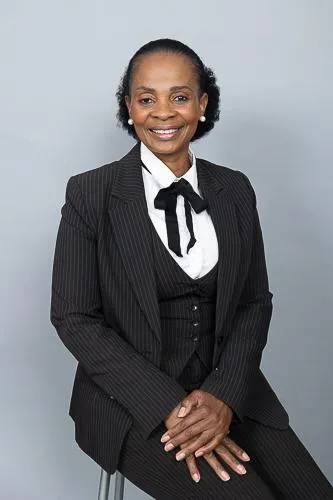Why big businesses need to rethink their relationship with SMMEs
OPINION

Matsie Mpshe, Founder and Managing Director at The Transformation Firm and Founder of the SMME Empowerment Summit
Image: Supplied
South Africa has over 2.5 million small, medium and micro enterprises (SMMEs), employing nearly 10 million people. Yet, many of these businesses are still viewed by corporates through the narrow lens of CSI or supplier development compliance.
What if we have it backwards? What if it is big business that can no longer afford to underestimate the value and innovation of small business? The truth is, without meaningful partnerships with the SMME ecosystem, especially in underrepresented and township communities, large companies risk stagnation.
It is time to reframe the conversation around small businesses. SMMEs are not charity cases. They are central to our country’s economic resilience and recovery. These entrepreneurs are resourceful, driven and deeply connected to the needs of the communities they serve.
They move with agility, often doing more with less, and their solutions are often more local, inclusive and relevant. They understand culture and context, and they are embedded in their markets. This is something many large corporations struggle to achieve, even with deep budgets and broad reach.
When we discuss true transformation, particularly in supply chains, we need to begin viewing SMMEs as strategic partners, rather than merely as tick-box initiatives. Too often, enterprise development is still treated as an isolated function, divorced from actual procurement or supply chain opportunities. This kind of support is well-meaning but short-sighted.
The real opportunity lies in collaboration that is sustainable and commercially driven. That means designing long-term interventions that build capacity, open procurement pipelines, and develop solutions together. It is not about doing SMMEs a favour but rather about recognising that the future of big business is intertwined with the success of small business.
Supporting SMMEs should not be the sole responsibility of one division or a social impact mandate. It should be a priority for operations, procurement, and product teams across the business. One of the most impactful shifts a company can make is to pay small businesses on time.
It seems basic, but it makes a significant difference to a small business's ability to manage cash flow and grow sustainably. Equally important is including them early in the design and development process. Why not co-create new product lines with small-scale manufacturers or service providers? Why not bring them into pilot projects or innovation labs?
Transformation is not only about representation. It is about inclusion in meaningful, income-generating opportunities.
And inclusion does not start with access to funding. It starts with access to networks, to decision-makers, to industry information, and to market opportunities. This is where large corporations can unlock real value. Not by building parallel programmes, but by finding points of synergy within their own ecosystems and supply chains.
Big business does not operate in a vacuum. Our success is intertwined with the communities around us and the businesses that serve them.
If we want to see sustainable growth, we need to start building ecosystems that are inclusive, practical and long-term. That means opening supply chains, not just talking about transformation. It means building relationships, not just writing cheques.
As we enter Women’s Month, there is also an opportunity to elevate women-led SMMEs beyond the once-a-year panels and campaigns. Women entrepreneurs bring invaluable insights, leadership and resilience to the economy. But they need consistent opportunities to grow and to lead. Corporate South Africa has a powerful role to play in making that happen, not as a favour, but as a business imperative.
If we are serious about rebuilding our economy, we must let go of outdated models that separate CSI from core business. The future of big business might just depend on the success of its smallest partners.
Matsie Mpshe, Founder and Managing Director at The Transformation Firm and Founder of the SMME Empowerment Summit